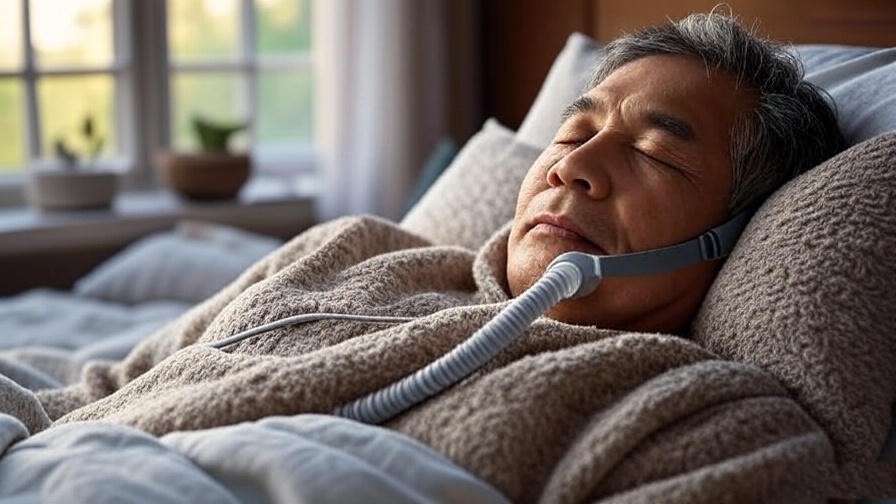Ever found yourself anxiously counting down the days, hoping your period arrives before a big event, trip, or special occasion? If you’re searching for natural ways to encourage your menstrual cycle to start a bit sooner, you might be surprised to learn that your sleeping position could play a role. Specifically, adopting the sleeping position to get periods early, like the fetal position, combined with holistic practices, can support your body’s hormonal balance and promote a regular cycle. In this comprehensive guide, we’ll explore how sleep impacts your menstrual health, reveal the best sleeping posture to encourage an earlier period, and share expert-backed holistic tips to nurture your overall well-being. Drawing on insights from sleep science, women’s health experts, and holistic wellness practices, this article offers actionable solutions to help you feel empowered and in tune with your body.
Understanding the Menstrual Cycle and Sleep Connection
How Sleep Affects Hormonal Balance
Sleep is a cornerstone of hormonal health, influencing the delicate interplay of estrogen, progesterone, and other reproductive hormones that regulate your menstrual cycle. During sleep, your body repairs itself, balances hormones, and manages stress levels—all critical for a timely period. According to a 2019 study published in The Journal of Clinical Endocrinology & Metabolism, insufficient sleep can disrupt the hypothalamic-pituitary-ovarian axis, which governs ovulation and menstruation. When this axis is thrown off, it can lead to delayed or irregular periods.
Poor sleep increases cortisol, the stress hormone, which can suppress ovulation by interfering with follicle-stimulating hormone (FSH) and luteinizing hormone (LH). For women hoping to encourage an earlier period, prioritizing quality sleep is essential to maintaining hormonal harmony.
Why Sleeping Positions Matter
Your sleeping position can influence more than just physical comfort—it can affect circulation, muscle relaxation, and even stress levels, all of which play a role in menstrual health. Certain postures, like sleeping on your stomach, may compress the pelvic area, potentially hindering blood flow to the reproductive organs. Conversely, positions that promote relaxation and circulation can support your body’s natural rhythms. By choosing the right sleeping posture, you may create an environment that encourages hormonal balance and, potentially, an earlier period.
The Best Sleeping Position to Get Periods Early

Why the Fetal Position Works
The fetal position—lying on your side with your knees drawn toward your chest—is widely regarded as the best sleeping position to support menstrual health. This posture offers several benefits:
- Relaxes Pelvic Muscles: Curling up in the fetal position reduces tension in the pelvic region, allowing the uterine muscles to relax and promoting blood flow to the reproductive organs.
- Reduces Stress: Mimicking the natural, comforting posture of a fetus, this position can lower stress levels, which is crucial since high cortisol can delay menstruation.
- Improves Circulation: The fetal position enhances blood flow to the abdominal and pelvic areas, supporting the uterine lining’s natural shedding process.
Women’s wellness communities, including holistic health forums, often share anecdotal evidence of the fetal position helping to ease menstrual discomfort and encourage cycle regularity. Dr. Sarah Thompson, a women’s health specialist, notes, “Sleeping in a position that promotes pelvic relaxation, like the fetal position, can create a supportive environment for hormonal balance.”
Step-by-Step Guide to Sleeping in the Fetal Position
To maximize the benefits of the fetal position, follow these steps for proper alignment and comfort:
- Lie on Your Side: Choose your left side for optimal circulation, as it reduces pressure on major blood vessels like the vena cava.
- Bend Your Knees: Gently draw your knees toward your chest, keeping them relaxed rather than tightly tucked.
- Support Your Head: Use a medium-firm pillow to keep your spine aligned and avoid neck strain.
- Add a Knee Pillow: Place a small pillow between your knees to prevent hip misalignment and enhance comfort.
- Stay Relaxed: Breathe deeply as you settle into the position to promote relaxation.
For best results, ensure your mattress is supportive yet comfortable, with a medium-firm feel to maintain spinal alignment. A body pillow can also enhance the fetal position by providing full-body support.
Additional Tips to Enhance the Fetal Position
To amplify the effects of the fetal position, consider these complementary practices:
- Warm Compress: Apply a warm compress or heating pad to your lower abdomen for 10–15 minutes before bed to relax pelvic muscles and boost circulation.
- Calming Bedtime Rituals: Use lavender essential oil in a diffuser or dim the lights to create a soothing sleep environment.
- Avoid Counterproductive Positions: Steer clear of stomach sleeping, which can compress the pelvic area and counteract the benefits of the fetal position.
Complementary Holistic Practices to Support Your Cycle
Meditation and Stress Reduction

Stress is a major culprit behind delayed periods, as it elevates cortisol levels, which can disrupt ovulation. Incorporating mindfulness meditation into your bedtime routine can help lower stress and support hormonal balance. A 2021 study in Frontiers in Psychology found that regular mindfulness practice reduces cortisol and improves reproductive health outcomes.
Try a 10–15 minute guided meditation focused on relaxation or women’s wellness. Apps like Calm or Insight Timer offer free meditations tailored to stress relief and hormonal balance. Alternatively, practice simple deep breathing: inhale for 4 seconds, hold for 4, and exhale for 6 to calm your nervous system.
Gentle Yoga for Menstrual Health
Gentle yoga poses can relax the pelvic area, improve circulation, and support menstrual regularity. Here are three poses to try before bed:
- Child’s Pose (Balasana): Kneel, sit back on your heels, and stretch your arms forward while resting your forehead on the ground. This pose relaxes the lower back and pelvis.
- Reclined Spinal Twist: Lie on your back, hug one knee to your chest, and guide it across your body to stretch the lower back and stimulate pelvic circulation.
- Cat-Cow Pose: On all fours, alternate between arching and rounding your back to release tension in the spine and pelvis.
Practice these poses for 10–15 minutes, focusing on slow, intentional movements. Yoga expert Lisa Holloway says, “Gentle yoga before bed can signal to your body that it’s time to relax, potentially supporting a more regular menstrual cycle.”
Herbal Teas and Nutrition

Certain herbal teas and nutrients can complement your sleep efforts by supporting hormonal health:
- Raspberry Leaf Tea: Known for its uterine-toning properties, this tea may promote cycle regularity. Sip 1–2 cups daily, ideally in the evening.
- Chamomile Tea: Its calming effects can reduce stress and improve sleep quality, indirectly supporting menstrual health.
- Ginger Tea: Ginger may help stimulate blood flow and ease menstrual discomfort.
Incorporate foods rich in iron (spinach, lentils), magnesium (nuts, dark chocolate), and vitamin B6 (bananas, chickpeas) to support hormonal balance. A sample evening snack could be a small bowl of Greek yogurt with almonds and a sliced banana—nutrient-dense and sleep-friendly.
Importance of a Consistent Sleep Schedule
A consistent sleep schedule stabilizes your circadian rhythm, which influences melatonin production and, in turn, reproductive hormones. Aim for 7–9 hours of sleep nightly, going to bed and waking up at the same time daily. Create a sleep-friendly environment by:
- Keeping your bedroom dark, quiet, and cool (around 60–67°F).
- Avoiding screens 1–2 hours before bed to prevent blue light from disrupting melatonin.
- Using blackout curtains or a sleep mask to enhance darkness.
A 2020 study in Sleep Medicine Reviews found that consistent sleep schedules improve hormonal regulation, potentially reducing menstrual irregularities.
The Science Behind Sleep and Menstrual Health
Hormonal Regulation and Sleep Cycles
Sleep occurs in cycles, including REM (rapid eye movement) and deep sleep stages, each playing a role in hormonal regulation. Deep sleep, in particular, supports the production of growth hormone and melatonin, both of which influence reproductive health. Melatonin, often called the “sleep hormone,” also interacts with estrogen and progesterone, helping to regulate the menstrual cycle.
Disruptions to REM or deep sleep—such as from late-night screen time or irregular sleep patterns—can throw off this delicate balance. Prioritizing restorative sleep through proper positioning and a consistent routine can create a foundation for hormonal health.
Stress, Cortisol, and Delayed Periods
High cortisol levels, often triggered by stress or poor sleep, can suppress ovulation by disrupting the release of FSH and LH. For example, a woman experiencing stress from work, travel, or life changes may notice delayed periods due to elevated cortisol. Real-world scenarios, like preparing for a wedding or a big presentation, can exacerbate this issue.
To combat cortisol, focus on stress-reducing practices like meditation, yoga, and optimized sleep. Dr. Emily Chen, an endocrinologist, explains, “Lowering cortisol through restful sleep and relaxation techniques can help restore ovulation and promote timely periods.”
When to Seek Professional Help
Signs of Underlying Menstrual Irregularities
While adopting the fetal position and holistic practices can support menstrual health, they may not address underlying medical issues causing irregular or delayed periods. If you experience any of the following, it’s time to consult a healthcare provider:
- Periods consistently delayed by more than a week beyond your expected cycle.
- Absence of periods (amenorrhea) for three months or longer.
- Severe menstrual pain or heavy bleeding that disrupts daily life.
- Symptoms like excessive hair growth, weight changes, or fatigue, which could indicate conditions like polycystic ovary syndrome (PCOS) or thyroid imbalances.
These signs may point to hormonal imbalances or other health concerns that require professional evaluation. Combining holistic methods with medical guidance ensures a comprehensive approach to your well-being.
Working with a Healthcare Provider

When discussing menstrual concerns with a gynecologist or naturopath, come prepared to maximize the appointment’s value. Here are tips to guide the conversation:
- Track Your Cycle: Use a journal or app (e.g., Clue, Flo) to log your period dates, symptoms, and sleep patterns. This data helps your provider identify trends.
- Ask Key Questions: Inquire about hormone testing, lifestyle factors, or potential conditions affecting your cycle. Examples include:
- Could my irregular periods be linked to stress or sleep issues?
- Should I consider blood tests for thyroid function or PCOS?
- Are there specific supplements or treatments to support cycle regularity?
- Discuss Holistic Approaches: Share your use of the fetal position, meditation, or herbal teas to explore how these can complement medical recommendations.
Dr. Rachel Patel, a gynecologist specializing in women’s wellness, advises, “A collaborative approach—combining lifestyle changes like optimized sleep with medical evaluation—offers the best outcomes for menstrual health.”
Practical Tips for Better Sleep and Menstrual Health
To integrate the fetal position and holistic practices into your routine, try these actionable tips:
- Create a Relaxing Bedtime Routine: Spend 15–30 minutes before bed journaling, practicing deep breathing, or listening to calming music. This signals to your body that it’s time to unwind, reducing cortisol and supporting hormonal balance.
- Invest in Sleep Accessories: A body pillow or weighted blanket can enhance comfort in the fetal position, promoting deeper sleep. Look for a medium-firm mattress to support spinal alignment.
- Track Sleep and Cycle Patterns: Use apps like Sleep Cycle to monitor sleep quality and correlate it with your menstrual cycle. Noticing patterns (e.g., poor sleep before a delayed period) can guide adjustments.
- Stay Hydrated and Avoid Stimulants: Drink plenty of water throughout the day and avoid caffeine or heavy meals 3–4 hours before bed to prevent sleep disruptions.
These small changes can compound over time, creating a sleep environment that nurtures both your menstrual health and overall wellness.
Common Myths About Influencing Your Period
Several myths circulate about how to induce or speed up periods, often leading to confusion. Let’s debunk a few:
- Myth 1: Extreme Exercise Guarantees an Early Period
While moderate exercise supports hormonal health, intense workouts can actually delay periods by increasing stress hormones. Stick to gentle activities like yoga or walking. - Myth 2: Certain Foods Can Instantly Trigger Periods
Foods like pineapple or parsley are often touted as period-inducers, but there’s no scientific evidence they work directly. Instead, focus on a balanced diet to support overall cycle health. - Myth 3: Sleeping Positions Alone Can Control Your Cycle
The fetal position supports relaxation and circulation, but it’s not a magic fix. It works best as part of a holistic approach, not a standalone solution.
The key is patience and balance. Holistic practices like the fetal position can support your body’s natural rhythms, but they’re not guaranteed to produce immediate results.
FAQs About Sleeping Positions and Periods
Q1: Can sleeping positions alone make my period come early?
A: Sleeping positions like the fetal position can support pelvic relaxation and hormonal balance, which may encourage a timely period. However, they’re not a guaranteed solution and work best alongside other holistic practices.
Q2: How long should I try the fetal position before expecting results?
A: Try the fetal position consistently for 1–2 menstrual cycles while incorporating stress reduction and a healthy diet. If your period remains irregular, consult a healthcare provider.
Q3: Are there other sleeping positions that help with menstrual health?
A: The fetal position is most effective, but sleeping on your back with a pillow under your knees can also promote pelvic relaxation. Avoid stomach sleeping, as it may compress the pelvic area.
Q4: Can poor sleep cause irregular periods?
A: Yes, poor sleep can elevate cortisol, disrupting ovulation and delaying periods. Prioritizing 7–9 hours of quality sleep can help regulate your cycle.
Q5: What if my period is still delayed after trying these tips?
A: Persistent delays may indicate an underlying issue like PCOS, thyroid problems, or stress. Consult a gynecologist for a thorough evaluation and personalized advice.
Conclusion
Optimizing your sleep with the fetal position, paired with holistic practices like meditation, gentle yoga, and a nutrient-rich diet, can create a supportive environment for menstrual health and potentially encourage an earlier period. By reducing stress, improving circulation, and nurturing hormonal balance, these strategies empower you to feel more in tune with your body. Start tonight by trying the fetal position, tracking your sleep and cycle patterns, and exploring calming rituals to enhance your well-being. If irregularities persist, don’t hesitate to seek professional guidance to address underlying causes. Your menstrual health is a vital part of your holistic wellness journey—take the first step today!













